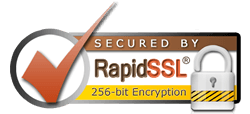Money for Any Reason You May Need!
A quick and easy way to get the loan you need today!
Blog
By Brenda
Choosing Between an FHA, VA or Conventional Home Loan
If you've been following the real estate market, then you know that financing is becoming increasingly difficult in this day and age unless you have a remarkably high credit score. That being said, even with lenders being more cautious about distributing loans, there is still a buying and selling market for mortgages. Finding a mortgage that matches your needs can be quite confusing, especially if your credit allows you to qualify for multiple kinds. Before you start your mortgage shopping, you should compare and contrast these three types of loans.
Conventional Loans
Conventional loans are termed �conforming' if they are $417,000 or less for a family house. These types of loans have guidelines for the mandated credit scores of borrowers, as well as a minimum down payment and income requirement. The majority of conventional loans need between a 5 and 20 percent down payment. They usually have an adjustable or fixed interest rate and their loan terms range from 15 to 30 years.
Pros and Cons Conventional Loans
In most cases, you'll find that conventional loans need less bureaucratic hurdles than its VA or FHA counterpart. Additionally, because this type of mortgage requires a bigger down payment, your home equity will build faster. You need superb credit to be able to qualify for low interest rates on this type of loan. Additionally, lenders require a bigger down payment than for those mortgages that are backed by the government.
VA Loans
Those people who served in the military or are currently on active duty should look into a VA Home Loan that is given out by the US Department of Veterans Affairs. If you are a qualified veteran or actively serving, you can purchase a home without the need to put any money down. However, the purchase price must not go over the appraisal value of the house, and the seller must pay the closing expenses. The VA itself does not loan out the money. Instead, it backs loans that are given out by private lenders to veterans. The basic entitlement of VA loans is cut off at $144,000. Veterans still need to qualify by their credit score and income.
Pros and Cons of VA Loans
A VA loan allows borrowers to gain up to 100 percent financing of their house's sale price. The veteran does not need to be a first-time homebuyer, and can keep reusing this benefit. VA programs let the sellers pay off the closing costs, as well as the VA funding fee. It is required that the veteran has a Certificate of Eligibility to qualify. Additionally, they must pay a VA funding fee, which may cause the borrower to have a 102 or 3 percent loan on their property. A borrower of a VA loan must still be creditworthy.
FHA Loans
The FHA loan is similar to the VA loan in that its job is not to lend out money. Instead, it gives government backing to borrowers in the case of a default on their loan. FHA loans can either be adjustable-rate or fixed-rate mortgages. However, most loans are fixed-rate. You can obtain an FHA loan when you have a moderate to high income-to-debt ratio. For instance, most financial experts advise that mortgage payments not go over 25 percent of your income after taxes. FHA loans let borrowers obtain higher mortgage payments. The biggest benefit of an FHA loan is that most FHA lenders will determine the borrower's creditworthiness through an overall credit picture not just using automatic underwriting software.
Pros and Cons of an FHA Loan
FHA Mortgages only require a 3.5 percent down payment for the loan, which is much lower than other conventional loans. Such loans can be as high as 20 percent, which deters many borrowers from the purchase of a house. Additionally, there is no minimum credit score limit requirement. Instead, individual lenders can use their own guidelines to determine a borrower's creditworthiness. An upfront mortgage insurance premium, as well as the annual premium tacks on a substantial amount to this type of loan. Moreover, there is an upfront mortgage insurance premium for those borrowers that are delinquent at a rate of 3 percent.
Related Posts


